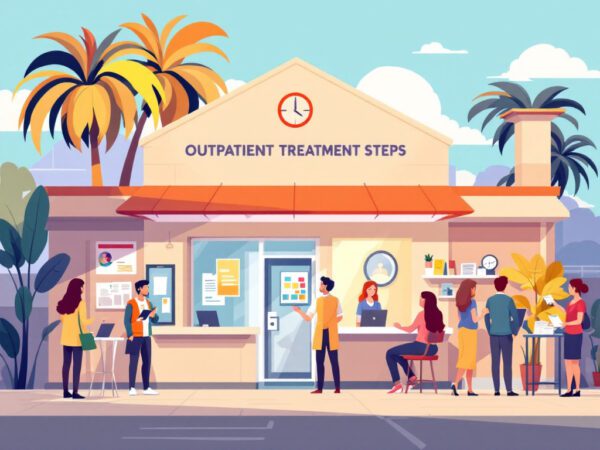Benefits of Peer Support Programs
Peer support programs have emerged as a vital resource, particularly for veterans navigating their recovery journeys. By fostering connections among individuals with shared experiences, these programs offer numerous benefits.
Impact of Peer Support Activities
Research indicates that peer support activities positively affect veterans’ health, life skills, and social integration. A scoping review conducted on peer support activities specifically noted a significant number of studies evaluating outcomes related to mental health conditions, as about 50% of the examined publications focused on this area (NCBI). The findings highlighted that these activities foster emotional and social support, aiding in recovery and promoting overall well-being.
| Peer Support Activity | Positive Outcomes |
|---|---|
| Group discussions | Improved mental health |
| Skill-building workshops | Enhanced life skills |
| Social events | Increased social integration |
Positive associations were documented in six out of seven domains of well-being, underscoring the importance of peer support in veterans’ holistic care (PubMed). We recognize that fostering these connections not only helps improve individual outcomes but also strengthens the community as a whole.
Positive Outcomes in Well-Being
The emotional support provided by peer groups significantly impacts veterans’ recovery processes. Participants often report feelings of belonging and reduced isolation, essential components in overcoming addiction and mental health challenges. Additionally, peer support contributes to the acquisition of valuable life skills, which are crucial for navigating both daily life and recovery milestones.
Peer support programs have shown measurable effects across several well-being domains, encompassing health improvements, life skills enhancement, and better social integration. The emphasis on shared experiences allows veterans to draw strength from one another, positioning them to face their challenges more effectively. For example, activities focused on building life skills can foster resilience and self-efficacy.
As peer support evolves, recognizing its benefits and integrating it into treatment plans can enhance overall outcomes for veterans and their families. Programs focusing on specific therapeutic interventions such as cognitive behavioral therapy or mindfulness-based therapy may further complement the support provided through peer interactions, making recovery a more comprehensive and fulfilling journey.
Peer Support Delivery Methods
When exploring the various ways in which peer support can be delivered, it’s important for us to understand the differences between in-person and synchronous support, as well as one-on-one and group support. Each method has unique benefits that cater to the needs of individuals seeking recovery.
In-Person vs. Synchronous Support
Peer support can take place either in-person or through synchronous formats, such as video calls. Recent evaluations indicate that peer support activities are predominantly delivered in person, with 92% being conducted synchronously (NCBI).
| Delivery Method | Advantages | Considerations |
|---|---|---|
| In-Person Support | Builds strong relationships; allows for direct interaction | May require travel; accessibility can be a concern |
| Synchronous Support | Flexible; can connect with peers regardless of location | May lack the personal touch of face-to-face support |
In-person support can foster a sense of community, which is particularly beneficial for those facing the challenges of addiction. However, synchronous support offers flexibility, making it easier for individuals with busy schedules or those living in remote areas to access help.
One-to-One vs. Group Support
Peer support can also be delivered through one-to-one meetings or group-based gatherings. Each has its own set of advantages, allowing individuals to choose the type of interaction that best fits their comfort level and needs.
| Support Type | Advantages | Considerations |
|---|---|---|
| One-to-One Support | Personalized attention; tailored advice and guidance | May feel isolating for some; less communal support |
| Group Support | Builds camaraderie; shared experiences foster connection | May not meet individual needs as well; can be intimidating for some |
Group support provides an opportunity for shared experiences and camaraderie, which can be especially healing for veterans and others dealing with similar challenges. On the other hand, one-to-one support allows for personalized attention, with discussions tailored specifically to the individual’s experience.
Both in-person support and virtual options are essential in delivering veteran peer support programs, as they align with individual preferences and promote a broader reach for those in need. Understanding these methods can help us better navigate the paths available for recovery and healing.
Role of Peer Supporters
Peer supporters play an essential role in the recovery journey for many individuals, particularly veterans. Their contributions can be categorized into informal peer support and integration into clinical teams.
Informal Peer Support
Informal peer support often involves veterans who share their experiences and insights with one another. These supporters act as confidants, offering not just empathy but practical advice drawn from their personal journeys. Research indicates that peer supporters frequently fill roles as informal counselors within their respective communities, providing assistance to veterans and their families (NCBI).
The benefits of informal peer support include:
| Benefit | Description |
|---|---|
| Shared Experience | Veterans can relate to one another’s challenges and triumphs, enhancing understanding and connection. |
| Accessible Support | Informal networks often make support readily available without the barriers of formal therapy settings. |
| Community Building | These relationships foster a sense of belonging and reinforce positive social interactions within veteran communities. |
For those interested in structured support, informal peer networks can seamlessly transition into organized programs, leading them to resources such as substance abuse counseling and mental health counseling.
Integration into Clinical Teams
Peer supporters are also becoming an integral part of clinical teams, enhancing the delivery of care in a way that is both effective and compassionate. These trained individuals, often referred to as Peer Support Specialists, actively aid in the recovery process by empathizing with their peers and sharing coping strategies learned from their own experiences. Research shows that these specialists not only support veterans’ mental health but are also essential in guiding them through treatment pathways (VA Health Services Research & Development).
In clinical settings, peer supporters help in various ways:
| Role | Function |
|---|---|
| Recovery Guidance | They provide insights on navigating the recovery process, steering others toward effective treatments and therapies like cognitive behavioral therapy or mindfulness-based therapy. |
| Emotional Support | Their experiences help others feel understood, reducing stigma and encouraging open discussions about mental health challenges. |
| Resource Connection | They help veterans access additional resources, from group therapy options like substance abuse group therapy to individual therapy. |
Challenges exist in ensuring the quality and effectiveness of peer support programs. Comprehensive training for these supporters is necessary, along with consistent supervision and the integration of feedback from both the peer supporters and those receiving support (National Association of American Veterans). As we look into peer support’s evolving role, it becomes clear that having peer supporters as part of clinical teams can significantly enhance the recovery experience for veterans.
Peer Support for Veterans
VA Peer Support Specialists
The Veterans Health Administration (VHA) offers a robust peer support program that encompasses nearly 1,420 certified peer specialists. These professionals play a vital role in various VHA settings, including inpatient mental health programs, outpatient mental health clinics, and substance use disorder treatment programs.
VA peer specialists are uniquely qualified as they have personal experience with recovery from mental health conditions. This experiential knowledge, combined with their training as certified mental health care professionals, allows them to connect meaningfully with veterans seeking support. Their roles typically include inspiring hope, helping veterans define and pursue recovery and wellness goals, and assisting participants in developing effective problem-solving skills.
Here’s an overview of the key roles of VA peer specialists:
| Role | Description |
|---|---|
| Inspiring Hope | Providing motivation and encouragement in the recovery journey. |
| Assisting with Goal Setting | Helping veterans identify and work towards personal recovery and wellness goals. |
| Problem-Solving Guidance | Teaching individuals effective techniques for overcoming obstacles in their recovery. |
| Resource Connection | Linking veterans with vital resources within the VA and the broader community. |
Combat Stress Peer Support Services
In addition to VA peer support specialists, Combat Stress Peer Support Services offer targeted assistance for veterans dealing with the specific challenges related to combat experiences. The goal is to create a supportive environment where veterans can share their experiences and learn from one another.
These services typically involve:
- Group Sharing: Veterans come together to discuss their feelings and challenges, fostering a sense of community and mutual understanding.
- Skill Development: Participants learn coping mechanisms and stress reduction techniques tailored to combat-related stress.
- Promoting Recovery: The focus is on building resilience and promoting overall well-being among veterans.
The peer support services have demonstrated effectiveness in improving mental health outcomes. As of 2017, peer specialists involved in pilot programs delivered comprehensive support, including whole health coaching to an estimated 4,479 veterans (VA Health Services Research & Development).
These peer-led services are crucial in enhancing veterans’ adherence to their recovery plans, contributing to sustained recovery and improved quality of life. Veterans interested in discovering more about these services can explore options like mental health counseling and substance abuse counseling as part of their broader treatment programs.
Achieving Healthcare Goals
Role in Mental Health Recovery
We understand that mental health recovery is a multifaceted journey, especially for veterans dealing with unique experiences and challenges. Peer support plays a pivotal role in this recovery process. Peer Specialists in the Veterans Health Administration (VHA) are individuals with personal experience in overcoming mental health conditions and are trained to become certified mental health care professionals. This alignment ensures they can effectively engage with other veterans, sharing common experiences that foster trust and understanding (VA).
The involvement of Peer Specialists in treatment teams significantly contributes to the holistic care of veterans. By providing emotional, social, and practical support, they create an environment conducive to healing (National Veterans Homeless Support). This peer-based approach has led to improved overall experiences for veterans within the VA system, allowing them to feel more empowered in their recovery journey.
Key Roles of Peer Support in Mental Health Recovery:
| Key Role | Description |
|---|---|
| Emotional Support | Offering empathy and understanding from shared experiences. |
| Goal Setting | Assisting veterans in defining and pursuing their personal recovery goals. |
| Navigation | Helping veterans maneuver through healthcare systems and services. |
| Social Connection | Building relationships to reduce feelings of isolation and loneliness. |
Support in Managing Health Conditions
Our commitment to assisting veterans extends beyond mental health recovery to the management of various health conditions. Peer Support Specialists are pivotal in helping veterans achieve specific health-related goals, such as managing diabetes, quitting tobacco, and maintaining a healthy weight (VA Health Services Research & Development).
The contributions of Peer Specialists include:
- Problem-Solving: Collaborating with veterans to identify challenges they face in achieving health goals and devising solutions.
- Establishing Healthy Practices: Encouraging veterans to adopt healthier lifestyle choices and practices that promote wellness.
- Engagement in Health Programs: Facilitating veterans’ participation in self-management programs tailored to their health conditions.
The effectiveness of peer support in managing health conditions not only enhances individual health outcomes but also nurtures a more trusting relationship between veterans and their healthcare teams. This partnership is critical for fostering a supportive environment that promotes lasting recovery and personal growth.
For ongoing support and resources, we encourage veterans to participate in our peer support groups, where they can connect with others who share similar experiences and goals.
Challenges in Peer Support Programs
Peer support programs play a vital role in providing assistance and resources for those in recovery, especially veterans. However, these programs face several challenges that need to be addressed for effective implementation.
Training for Peer Supporters
Training is essential for peer supporters to ensure they can provide the best support possible. In programs like Combat Stress, peer support staff, who are veterans with lived experiences of military-related trauma, report finding their roles fulfilling and believe they are valued contributors to the organization. Proper training equips them with the skills necessary to navigate sensitive situations and maintain effective communication with those seeking help.
Training programs should include the following components:
| Training Component | Description |
|---|---|
| Lived Experience Sharing | Opportunities for peer supporters to share their own recovery journeys. |
| Active Listening Skills | Techniques to foster openness and trust in conversations. |
| Crisis Management | Strategies for managing and de-escalating crises that may arise. |
| Boundary Setting | Guidelines for maintaining professional boundaries while providing support. |
Sustainability and Effectiveness
Sustaining peer support programs requires consistent funding and community support. Challenges such as ensuring the quality of support, maintaining confidentiality, and differentiating peer support from professional care must be addressed. Programs need comprehensive planning and ongoing support from healthcare systems to enhance their effectiveness and sustainability (National Association of American Veterans).
Key factors for sustainability include:
| Factor | Importance |
|---|---|
| Funding | Ongoing financial support to maintain program operations and staff. |
| Quality Assurance | Regular evaluations to ensure that peer support services meet established standards. |
| Community Involvement | Engagement with local organizations to boost resources and awareness. |
By addressing training and sustainability challenges in peer support programs, we can enhance its overall effectiveness and better serve our community. For additional resources on peer support and its impact, consider exploring our articles on peer support groups and mental health counseling.















